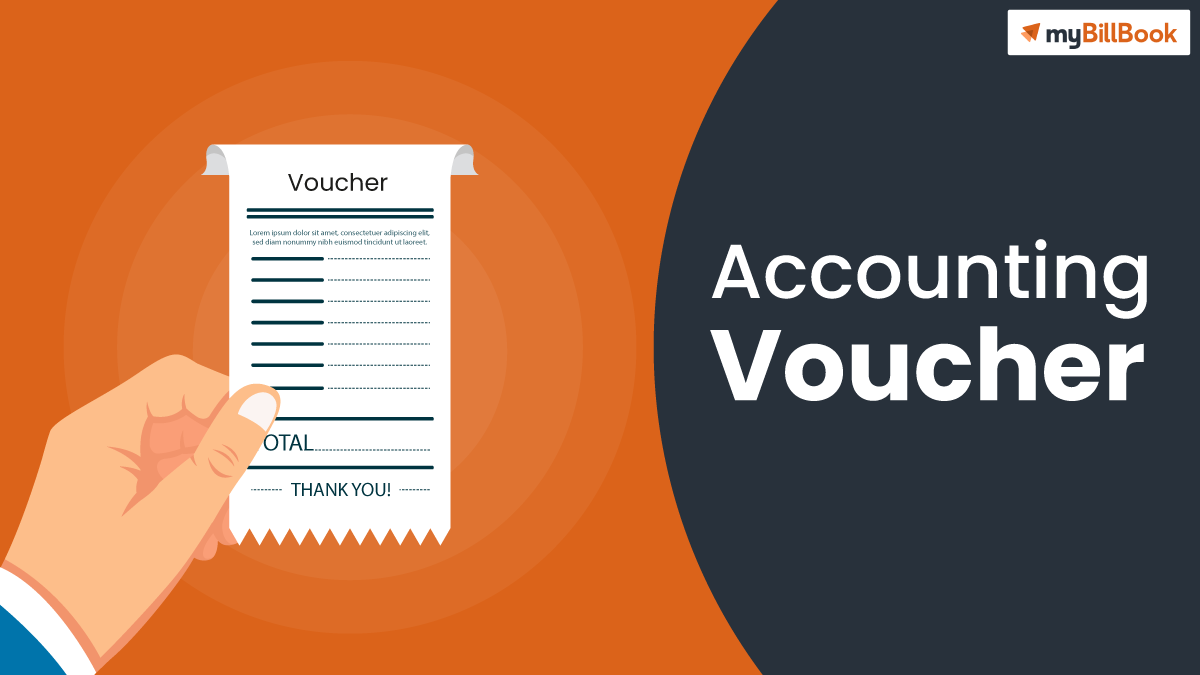What is an Accounting Voucher?
An accounting voucher is a record that acts as a supporting document to the entries recorded in the accounting books. The vouchers are stamped as ‘paid’ once the payment is received by the supplier. The payments are recorded in the respective ledger accounts. The accounting vouchers are useful for upholding a higher level of control over the payment process. Another advantage of a voucher is that it can be pre-numbered which makes the auditing easier. Read this article to know all about accounting vouchers.
Why are accounting vouchers prepared?
Every accountant needs to create a voucher when an invoice is received from a supplier and payment has been done for that invoice. These vouchers are basically attached with the supporting documents related to any payment and added to the respective ledger file.
Moreover, accounting vouchers are a source document and proof of transactions that take place in a business. Later, these vouchers play an important role during the audit process every yea. It acts as audit evidence for external auditors. It also helps the business owner to keep track & control transactions of the company.
How to prepare an accounting voucher
An accountant has to prepare accounting vouchers for a company. The accountant uses the source document to prepare the vouchers. The source documents are the papers related to a business transaction. Such documents comprise cash memos, bills, bank deposit slips, receipts, chequebook counterfoils, challans, and other information which proves the existence of a transaction in an organisation. Almost all the vouchers in accounting will have the same details. A voucher usually includes the following details.
- Serial number of voucher
- Type and Date of Voucher
- Debit and Credit Column
- Amount in both figures and words
- Total Column
- Particulars column (where the brief description of the transaction is recorded)
- Space for signature of accountant
- Signature of manager or authorised person
- Signature of receivers (for bank payment voucher or cash payment voucher)
It is very important to carefully prepare the voucher as any mistake can cause of lot of trouble for business owners. So, while preparing a voucher, an accountant must follow certain procedures as mentioned below.
- All the supporting documents must be carefully verified (date, amount, nature of transactions, signature)
- All the supporting documents must be approved by an authorised person
- The accountant should select the type of voucher to be used for preparing the transaction
- The accountant must make sure that the voucher’s debit and credit sides are balanced
Moreover, an accountant must allot the correct account head to avoid any kind of mistakes in recording the transactions.
Types of accounting vouchers
Since you have now understood the vouchers meaning in accounting, let’s through some light on the different types of vouchers.
- Receipt Voucher
This type of voucher is used to record cash or bank receipt. There are two types of receipt vouchers known as Cash Receipt Voucher and Bank Receipt Voucher. A cash receipt voucher will have the information regarding the receipt of cash in hand. Whereas the bank receipt voucher indicates receipt of cheque or DD (demand draft). This means the money is not received as cash but, all the transactions have been done through bank transfers or checks or DD.
- Payment Voucher
A payment voucher is not like a receipt voucher. The receipt voucher depicts the inflow of funds. But a payment voucher describes the outflow of funds. The main use of payment vouchers is to record any payment of cash or cheque. There are two different types of payment vouchers which are cash payment vouchers and bank payment vouchers. A cash payment voucher denotes all the payments of cash and the latter indicates the payment made by cheque or demand draft.
- Non-Cash or Transfer Voucher or Journal Voucher
A non-cash or transfer voucher which is also known as a journal voucher is used for all non-cash transactions. These are used as documentary proof. For example: after goods are sold on credit, the cash or the bank account is not affected. In such cases, the voucher will debit the debtor to whom the goods are sold on credit. And the sales on the credit account will be credited.
- Supporting Voucher
A supporting voucher is written evidence of the transactions that happened in the past. For instance, you can attach the expense bill with the original voucher to support the main voucher. A good example of such a supporting voucher is the fuel bills that are attached with the transportation vouchers.
Conclusion
Every company hires an accountant who can prepare such vouchers for accounting purposes. These recordings are extremely essential for any business to track all the income & expenditures and to ensure statutory compliances.
Besides accounting is a must in every organisation even if it is a small business. Accounting can keep everything organised and can back up all the tax return claims.
Hope this article on vouchers was helpful!








